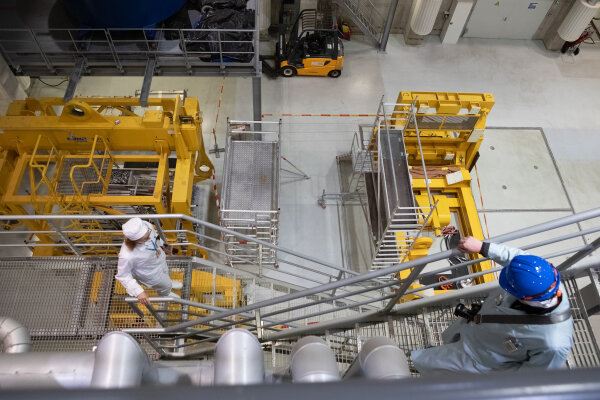Lithuania will assess the possibilities for nuclear energy development – Ignalina Nuclear Power Plant will contribute its expertise
2025

On July 3rd of this year, the Government of the Republic of Lithuania discussed the issue on the possibilities for developing nuclear energy in Lithuania. During the meeting, it was agreed to establish a working group at the Ministry of Energy, which will involve the Ignalina Nuclear Power Plant in preparing options for the development of nuclear energy in Lithuania, while the State Nuclear Power Safety Inspectorate was tasked with submitting proposals on safety regulations.
“The return of nuclear energy to the agenda of strategic issues shows that Lithuania is thinking ahead – seeking long-term stability, energy independence and progress. Considering the growing demand for electrical energy in Lithuania, which is projected to increase more than threefold by 2050, it is necessary to realistically assess the potential of various generation sources to ensure clean, reliable and competitive energy in the country and the region. Small modular reactors are one of the potential directions that should be seriously and professionally evaluated”, says Linas Baužys, Director General of the Ignalina Nuclear Power Plant.
According to L. Baužys, Ignalina Nuclear Power Plant, with its many years of experience in the field of nuclear energy, is ready to actively cooperate with the working group and contribute to the preparation of the feasibility study, both at the expert and technical level. “Our enterprise has accumulated expertise in nuclear energy not only in the operation, but also in the decommissioning of nuclear facilities, and this experience is invaluable when planning new nuclear capacities”, notes Linas Baužys.
According to the public opinion survey conducted last September on the initiative of the Ignalina Nuclear Power Plant, as many as 42% of Lithuanian residents would support the development of new-generation nuclear energy in Lithuania.
Representatives from relevant state institutions, scientific institutions and energy sector companies will work in the planned working group to assess the development opportunities. The group's task is to conduct a detailed analysis, involve the public, cooperate with international experts and, prepare a report based on the assessments and small nuclear reactor projects. The report will present strategic directions and an action plan for the development of nuclear energy in Lithuania. The Ignalina Nuclear Power Plant has been assigned the role of providing expert assistance. It will carry out the necessary studies and prepare reports and other documents needed to make informed decisions.
The National Energy Independence Strategy approved last year emphasises that, with growing demand for electrical energy and climate targets to meet, all possible solutions for electricity generation capacity must be considered. It is estimated that by 2050, electricity demand in Lithuania could increase more than threefold, from 24 TWh in 2030 to 74 TWh in 2050. Taking into account the challenges of climate change management, energy security objectives and studies carried out, one of the possible solutions is to install nuclear reactors with a capacity of up to 1.5 GW in Lithuania.
The National Energy Independence Strategy stipulates that a decision on the installation of small nuclear reactors should be taken by 2028, with the first 0.5 GW nuclear reactor capable of operating by 2038 and the remaining reactors by 2050.
It is claimed that nuclear energy could become an important and sustainable part of Lithuania's renewable energy system, ensuring a stable supply of electrical energy when solar and wind generation is not constant. Thus, nuclear energy acts as a reliable counterbalance to variable renewable sources, helping to maintain the balance and reliability of the energy system. By integrating nuclear energy, Lithuania could more effectively achieve its climate neutrality goals while maintaining security of supply and competitive electricity prices.

